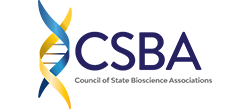Seeking Improved Immune Response vs mRNA Vaccine Full Patient Enrollment Expected Within Six Months
ATLANTA, GA, August 10, 2023 — GeoVax Labs, Inc. (Nasdaq: GOVX), a biotechnology company developing immunotherapies and vaccines against cancers and infectious diseases, today announced that vaccinations have begun in an investigator-initiated clinical trial (ClinicalTrials.gov Identifier: NCT05672355 ) of GEO-CM04S1 in patients with chronic lymphocytic leukemia (CLL), being conducted at City of Hope National Medical Center.
Despite a high vaccination rate, CLL patients may be at high risk for lethal COVID-19 infection due to poor immune response to currently available vaccines. The GEO-CM04S1 vaccine uses a modified vaccinia virus (MVA) backbone to carry SARS-CoV-2 virus antigens that may be more effective at inducing COVID-19 immunity in patients with poor humoral immune responses since MVA strongly induces T cell expansion even in the background of immunosuppression. By targeting both the spike (S) and nucleocapsid (N) protein antigens, GEO-CM04S1 broadens the specificity of the immune responses and protects against the loss of efficacy associated with current vaccines due to the significant sequence variation observed with the spike antigen.

The study is examining the use of two injections of GEO-CM04S1, three months apart, to assess immune responses in these vulnerable patients, with an mRNA vaccine (currently, the Pfizer-BioNTech Bivalent vaccine) as the control arm. Participants will be randomized 1:1 to receive two boosters with either the GEO-CM04S1 or the control vaccine. The primary immune response outcome will be assessed at 56 days following the first booster injection. Up to 40 participants in each arm will be vaccinated, with immune responses evaluated and compared at the interim and final analyses.
David Dodd, GeoVax President and CEO, stated, “We are very pleased with the rapid start for this third important study for GEO-CM04S1, which we expect will achieve full patient enrollment within six months. We believe the GEO-CM04S1 vaccine, containing the two antigens, S and N, along with the recognized antibody and cellular immune responses resulting from the MVA approach, has the potential to offer greater booster protection than that from the current vaccines in use, as well as provide a greater degree of protection within immunocompromised patients. We expect the CLL trial will add to the data coming from our other ongoing trials, confirming the potential benefit of GEO-CM04S1 in another population of immunocompromised individuals. We look forward to sharing progress reports as we advance.”
About GEO-CM04S1
GEO-CM04S1 is a next-generation COVID-19 vaccine based on GeoVax’s MVA viral vector platform, which supports the presentation of multiple vaccine antigens to the immune system in a single dose. GEO-CM04S1 presents both the spike and nucleocapsid antigens of SARS-CoV-2 and is specifically designed to induce both antibody and T cell responses to non-variable parts of the virus. The more broadly specific and functional engagement of the immune system is designed to protect against the new and continually emerging variants of COVID-19. Based on data from animal models and a completed Phase 1 clinical study, vaccine-induced immune responses were shown to recognize both early and later variants of SARS-CoV-2, including the Omicron variant. Vaccines of this format should not require repeated modification and updating.
A recent presentation of unpublished data from the open-label portion of the Phase 2 trial of GEO-CM04S1 ( ClinicalTrials.gov Identifier : NCT04977024 ) in patients undergoing hematological cancer treatment (i.e., patients who have reduced immune system function as a result of treatment ) indicates that GEO-CM04S1 is highly immunogenic in these patients, inducing both antibody responses, including neutralizing antibodies, and T cell responses. These data support the planned progression of the Phase 2 clinical study, which will include a direct comparison to currently approved mRNA vaccines. GEO-CM04S1 also continues to advance in another Phase 2 clinical trial as a booster for healthy patients who have previously received the Pfizer or Moderna mRNA vaccine (ClinicalTrials.gov Identifier: NCT04639466 ). Data from these studies will form the basis for comparing vaccine potential in unique patient groups as well as the general population.
GeoVax Labs, Inc. is a clinical-stage biotechnology company developing novel therapies and vaccines for solid tumor cancers and many of the world’s most threatening infectious diseases. The company’s lead program in oncology is a novel oncolytic solid tumor gene-directed therapy, Gedeptin ® , presently in a multicenter Phase 1/2 clinical trial for advanced head and neck cancers. GeoVax’s lead infectious disease candidate is GEO-CM04S1, a next-generation COVID-19 vaccine targeting high-risk immunocompromised patient populations. Currently in three Phase 2 clinical trials, GEO-CM04S1 is being evaluated as a primary vaccine for immunocompromised patients such as those suffering from hematologic cancers and other patient populations for whom the current authorized COVID-19 vaccines are insufficient, and as a booster vaccine in patients with chronic lymphocytic leukemia (CLL). In addition, GEO-CM04S1 is in a Phase 2 clinical trial evaluating the vaccine as a more robust, durable COVID-19 booster among healthy patients who previously received the mRNA vaccines. GeoVax has a leadership team who have driven significant value creation across multiple life science companies over the past several decades. For more information, visit our website: www.geovax.com.

P: 404.221.0617
Fax: 404.448.3982
Email: admin@galifesciences.org
Address: 8607 Roberts Drive, Suite 250, Atlanta, GA 30350


